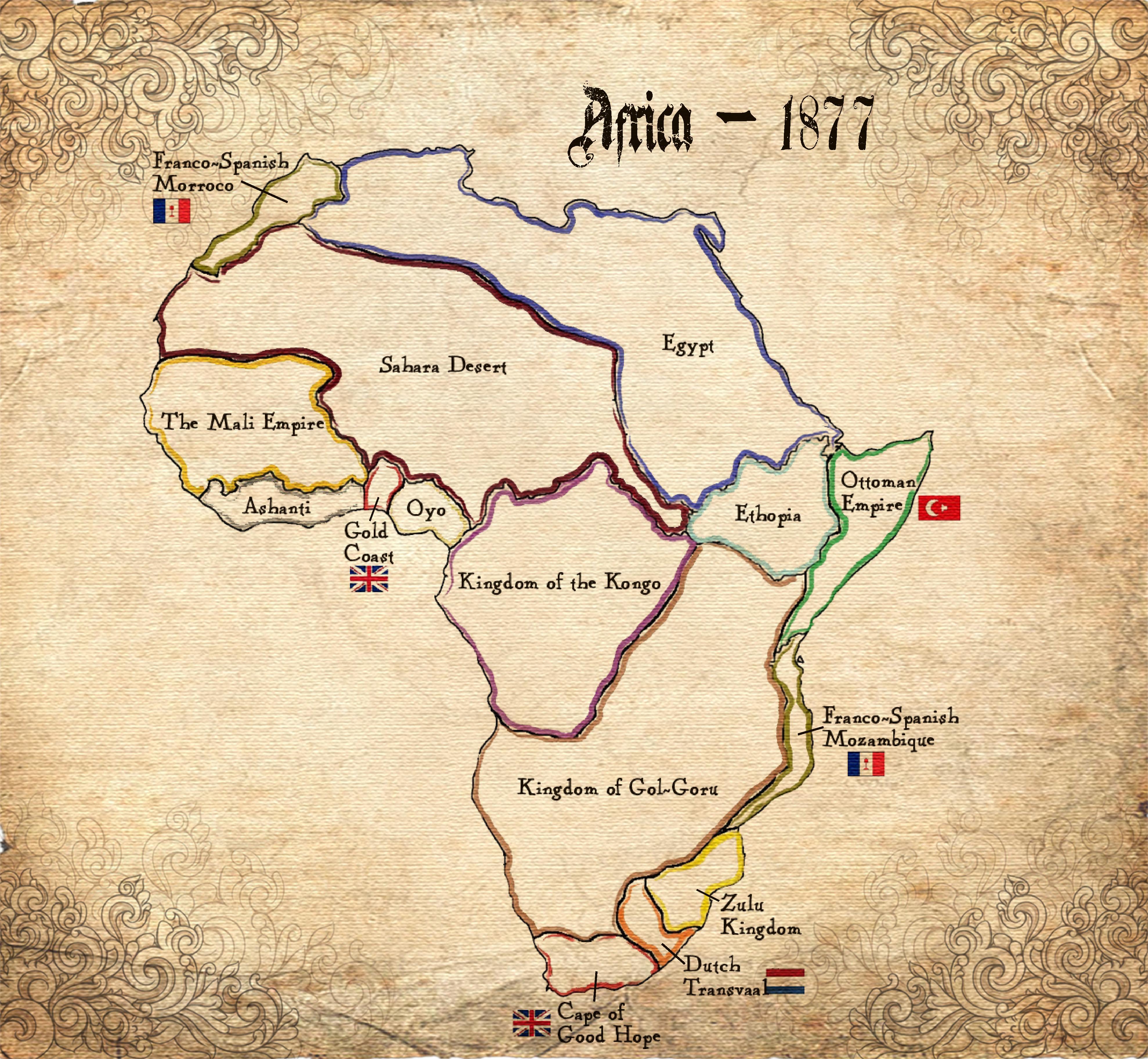 The Mali Empire
The Mali Empire
Since its creation after the fall of the Ghana Empire in the early 13th century, the cities of Mali have become important trading centers for all of West Africa, controlling the majority of the international gold and salt trade. The cities of the Mali are famous centers of wealth, culture, and learning. Timbuktu has grown to become one of the major cultural centers, not only of Africa, but of the entire world. The vast libraries and universities of Timbuktu are meeting places of the finest poets, scholars, and artists of Africa and the Middle East.
The Mali Empire has the most contact with Europe and the Americas. Those traveling to the Americas gravitate to the larger, cosmopolitan cities in the northeast.
The Empire of Ethiopia
Between 1755 and 1855, Ethiopia experienced a period of isolation referred to as the "Age of Princes". In 1855, Egyptian missionaries entered Ethiopia. The increased influence of the Church of Ohm ended the Age of Princes, and Ethiopia began to modernize and take part in world affairs once again.
Over the last two decades, Ethiopia suffered several rebellions. This, combined with the constant incursion of Ottoman Empire, has left the country war weary.
The Kingdom of Kongo
Kongo is actually a conglomerate of many smaller kingdoms, with the overall monarch, or Mwene Kongo, acting as the head of state. In reality, the Mwene Kongo exerts great control over the kingdoms closest to the capital and the coast, but the further away the subjects, the less inclined they are to pay taxes and supply troops. The current Mwene Kongo is considered weak by many of his subjects and is thought to be too eager for European money and fineries.
The Kingdom of Kongo has established trade routes with the League of American States. Many Kongolese procure passage to the Americas through these routes. New Orleans has a large Kongolese expatriate population and the West African influence in the food and cultures of Louisiana is notable.
Zulu Kingdom
Shaka Zulu was born circa 1787. Shaka was a renowned warrior and, in 1818, assumed leadership of the entire regional tribal alliance. Shaka initiated many military, social, cultural, and political reforms, forming a well-organized and centralised Zulu state. The most important reforms involved the transformation of the army, thanks to innovative tactics and weapons he devised. By 1825, Shaka had conquered a huge empire covering an area of around 11,500 square miles.
In the late 1830s, the Zulu and the Boers, Dutch colonists in Transvaal, clashed several times over land and cattle. More recently, expansion by the British Dominion has the southern tip of Africa again preparing for war.
The Zulu have a strong animistic tradition and deep ties to the animal spirits of Africa, it is rare for them to travel far from their homeland.
The Kingdom of Gol-Goru
Taking up a significant portion of central and southern Africa, the Kingdom of Gol-Goru (Kingdom of the Toad) is a vast no man’s land, which the surrounding kingdoms avoid at all costs. The land is inhabited by a number of tribes, that fight amongst themselves, but will unite to crush any outsider that violates their borders. Rumors abound of ancient cities in the heart of the kingdom, but no expedition has ever returned to verify these stories.
Player characters may not be from the Kingdom of Gol-Goru.

